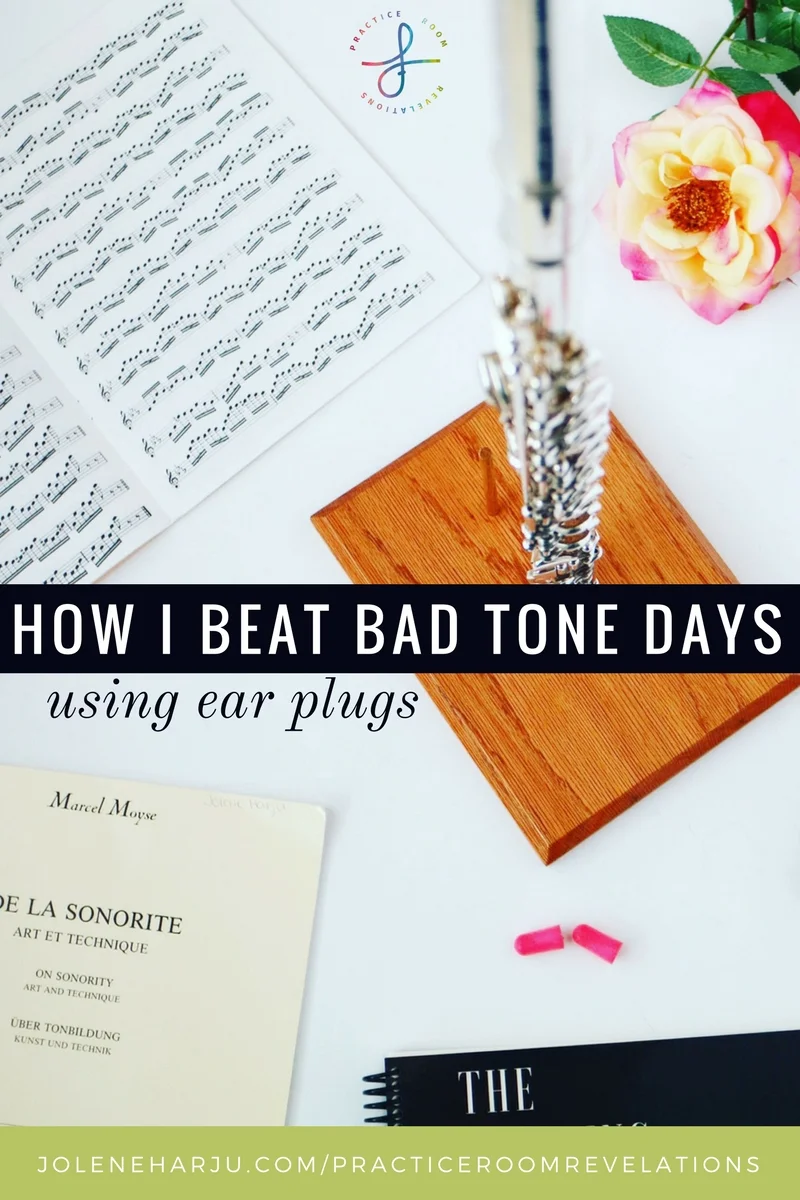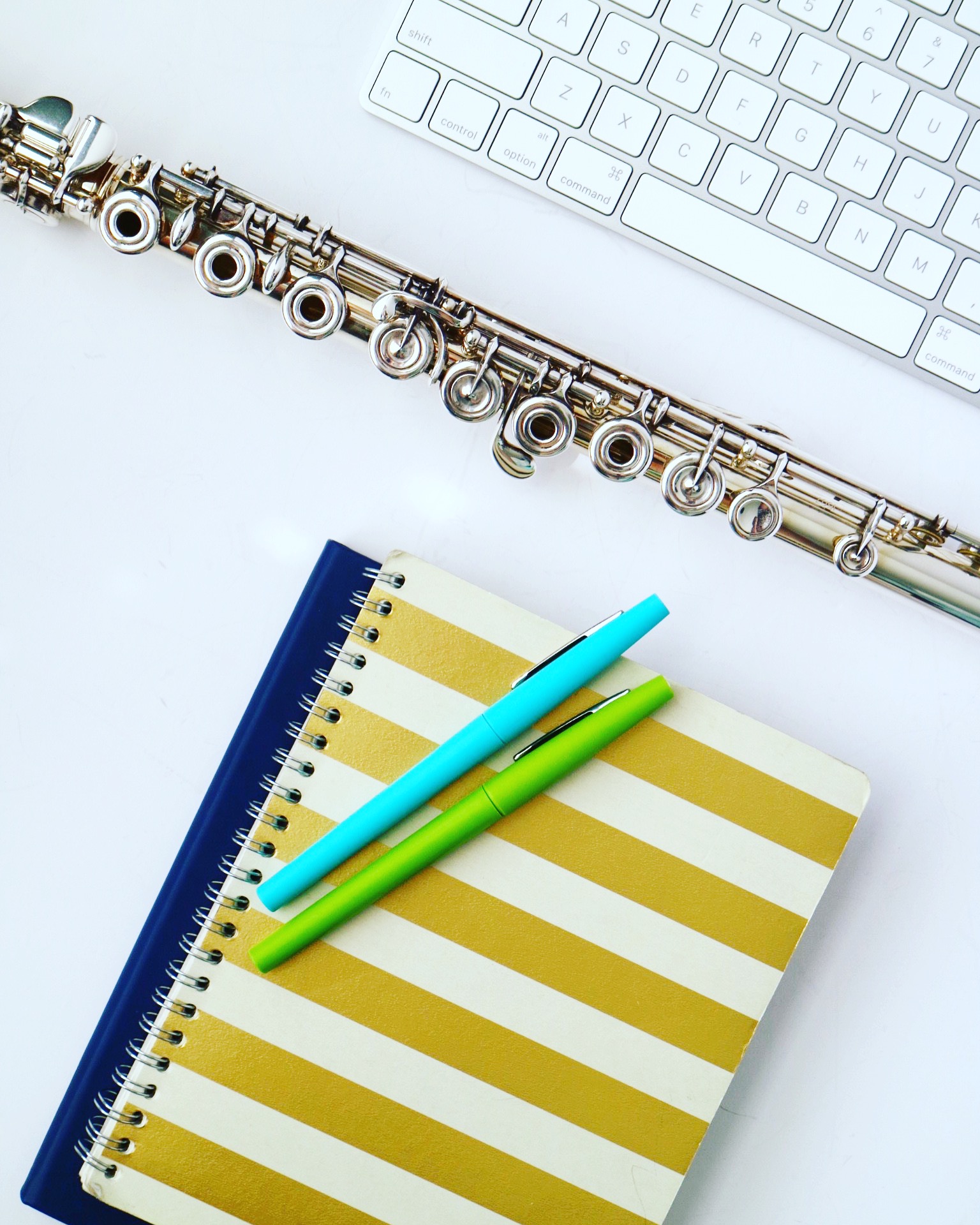How I Beat "Bad Tone Days" Using Ear Plugs
You put your instrument together, play a few notes, and things just aren't feeling or sounding right. You're cracking notes and struggling to find comfort. All of a sudden, your tone is gone.
In an effort to sound better, you force your sound to come out. All in all, nothing is working, and it's frustrating.
Where Did My Sound Go?
There are several reasons why a bad tone day can happen. Here are a few reasons I find to be true for myself:
I'm physically tense, fatigued, or congested.
I've just eaten something cold.
My headjoint is slightly off the ideal mark.
My flute has a leak.
- I've gone several days between practicing and feeling "out of shape."
Let's look at that last one...
I've gone several days or weeks without playing many times. (Such as that time I slammed my finger in a door and couldn't play for a month.)
I've found that it is possible to come back and feel like nothing's changed. In some cases, I'm so refreshed and excited to play again that I sound even better than before.
A Deeper Reason
This week, however, my two days off were associated with guilt and fear because a deadline is looming only a few weeks away. When I came back to playing, I was nervous about having diminished my own progress and worried about how much work I still have to do.
Before I even played a note, I was imagining my sound as being closed off and stuffy.
I convinced myself I was out of shape, and I played that way.
Beating the Cycle of Frustration
- Before I began practicing, I told myself I was "out of shape."
- I played with the closed off sound I heard in my head before I even started.
- I heard my sound and confirmed I was playing poorly and without ease.
- I judged myself for taking two days off and began self-loathing.
- The frustration extended to my physical use, and I tried forcing sound out.
- More tension meant more frustration, more judging, and more self-loathing.
- The cycle continued until I became too frustrated to continue.
END-GAINING VS. MEANS-WHEREBY
I've recently been reading Indirect Procedures: A Musician's Guide to the Alexander Technique by Pedro de Alcantara. One of the first Alexander Technique concepts discussed is the principle of End-Gaining vs. Means-Whereby.
As described by Alexander Technique teacher Hilary King:
"End gaining is the tendency we have to keep our mind and actions focused on an end result whilst losing sight of, and frequently at the expense of, the means-whereby the result is achieved."
(Click here to read the full article on End Gaining by Hilary King!)
I'm discovering that this concept can appear on many levels, from the action of a single note, to long-term life goals. When it comes to sound, I was desperate for the end-result of "sounding better," and I found myself forcing sounds and feeling frustrated. I lost sight of the means-whereby.
EAR PLUGS
When I was first learning about the benefits of singing and playing in relation to support and optimal body feeling during grad school, Professor Amsler had me use ear plugs to turn attention to feeling rather than hearing. With the work we were doing to change and improve sound, the dramatic difference in tone from my ears often sounded strange from my own perspective: my sound no longer sounded big to me, because it was projecting and sounding big for the room.
using ear plugs, the emotional response of hearing and judging can be replaced by feeling and observing.
Since my sense of hearing caused me to end-gain, adding ear plugs re-directed my reliance on hearing and allowed me to include more senses into my approach.
I could invite my kinesthetic sense (the sense of movement) into my awareness, and observe the movements that would allow me greater freedom:
- The 6 Places of Balance
- Can I Release the lower back and abdomen to allow freedom for breathing and support?
- Where do I lose support from the ground?
- Where is my tongue?
- What is the space between the teeth like?
Singing + Playing
Singing and Playing naturally encourages me to notice optimal support within the body without forcing. Doing this with ear plugs is a powerful way to observe the body with greater clarity, and the first thing I lean on when I'm bringing my best sound back.
20 Minutes Later...
After using ear plugs and lots of singing and playing, I was out of the loop of self-misery and enjoying a more resonant sound with ease! I could move on to a more productive practice session, feeling grateful for having worked through it!
Want 20+ Ideas For Bad Tone Days?
One of the first posts I wrote back in 2012 is called How To Cope with a Bad Tone Day.
Reading it again now, I still rely on these same things! (Minus travelling up and down 3 flights of stairs to the practice rooms at the University of New Hampshire!)



![The Secret to Nailing Difficult Runs [Video]](https://images.squarespace-cdn.com/content/v1/5698446a89a60aae9b0dd518/1519498409588-H2NGSKCYCBKYJPY7ZRV9/IMG_5822.JPG)






![Fundamentals Workout Plan [Free Download]](https://images.squarespace-cdn.com/content/v1/5698446a89a60aae9b0dd518/1491747338685-IZVHNSYJC4H0QHU8G3XJ/IMG_6887.JPG)
![Multiphonics Tutorial + 5 Daily Exercises [Video]](https://images.squarespace-cdn.com/content/v1/5698446a89a60aae9b0dd518/1491660032588-MOF8WEZDURSOZRKZ5OVI/IMG_6780.JPG)